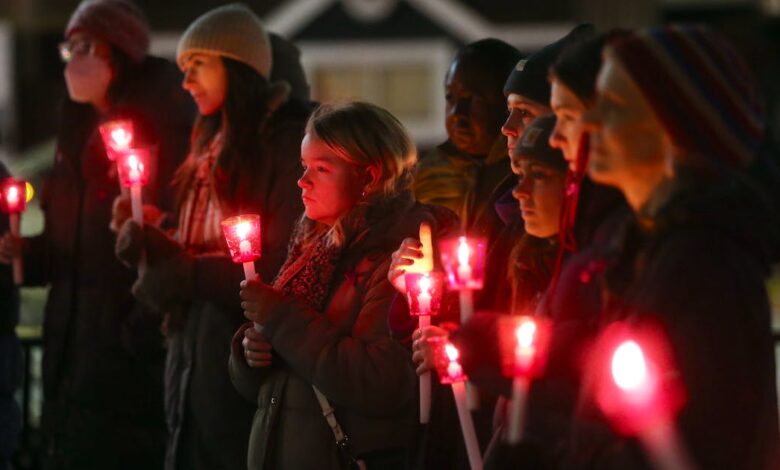Nova Scotia to get $18.4 million from Ottawa in ‘historic’ funding deal aimed at ending gender-based violence

Nova Scotia will receive $18.4 million in what is being called a “historic” investment by the federal government for programs and services that seek to end gender-based violence, thanks to a new federal-provincial agreement signed Thursday.
The agreement will see the funds distributed to the province over the next four years and will be used to fund the work of community-based service providers focused on initiatives to prevent domestic violence. It will also support work that responds to the recommendations of the Mass Casualty Commission, government officials said during a news conference in Halifax on Thursday.
The funding is part of the federal government’s national action plan to end gender-based violence, a 10-year plan that aims to build a Canada free of violence against women, girls and 2SLGBTQI+ people.
The agreement signed Thursday is one of a series of bilateral agreements between the federal government and the provinces and territories.
Lisa Hepfner, parliamentary secretary to federal Women and Gender Equality Minister Marci Ien, spoke Thursday of the need to support survivors of gender-based violence and address the root causes of the issue, noting that it can results in tragedies such as the mass shooting in Nova Scotia in 2020 that left 22 people dead by a perpetrator who had a history of violent behaviour, including against his common-law spouse.
“Most of us can imagine a friend, a sister, an aunt or a mother who suffered in silence while someone she knew, someone she loved, caused her physical and emotional pain,” Hepfner said during a news conference in Halifax.
“When we see that 11 million people in Canada have experienced intimate partner violence at least once after the age of 15, we know that more action must be taken.”
Outreach support
Jill Balser, the provincial minister responsible for the Advisory Council on the Status of Women, called the federal investment “historic,” and pledged the money would be used to fund the work of community organizations connecting with survivors and outreach workers who are best placed to help those in need of support.
The Peer Outreach Support Services and Education (POSSE) organization will receive $1 million of this funding over the next four years to help fund their youth-driven work supporting young Nova Scotians struggling with issues of violence, homelessness, crime, sexual health and human trafficking, the province announced Thursday.
Kimm Kent, co-founder of POSSE, said her organization was created by and for youth with lived and living experience of many forms of violence and marginalization. Her organization’s youth outreach workers have been filling a significant gap in services for young people in crisis in Nova Scotia, which is why this influx of cash is deeply welcome, Kent said.
“Through the work that we’re doing, the peers are connecting with each other, then they’re going out and doing street-level outreach from a harm reduction and human rights perspective, so we’re literally on the street, meeting folks wherever they are,” Kent said.
“This funding allows us to continue to do that without worrying about the doors shutting and those relationships that we’ve made with people being ceased at the end of March 31.”
She added that her organization is currently working on a non-police mental health and addiction crisis response model for rural areas of the province.
Indigenous empowerment
The Mi’kmaw Native Friendship Centre will also receive $725,000 over four years towards an Indigenous empowerment fund through this new federal-provincial agreement.
Executive director Pam Glode-Desrochers stressed the importance of an inclusive approach to providing services and education about what the Mass Casualty Commission called an “epidemic” of gender-based violence in Canada.
This includes programming for men and boys, she said. This year, her centre was provided with provincial funding for the first time in its 50-year history for a gender-based violence program for Indigenous men.
“That is huge, because we are a family unit, we are a community, and we need to recognize the importance of how we work and how we see each other in our day-to-day world.”
Glode-Desrochers said the funding from Ottawa is deeply welcome, but she also stressed the value of having multiple levels of government and the community involved in working toward solutions to end gender-based violence in Canada.
Only with multiple partners working together on shared priorities will long-term solutions with the best outcomes be possible, she said.
“This funding will save lives.”



